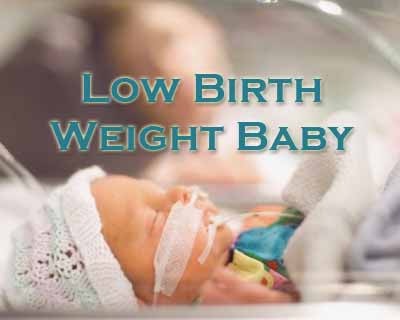
Follow WOWNEWS 24x7 on:
Updated: June 19, 2025 03:00

A new study has revealed that nearly half of India’s low birth weight cases originate from just four states—Uttar Pradesh, Bihar, Maharashtra, and West Bengal. While the overall prevalence of low birth weight has declined from 26 percent in 1993 to 18 percent in 2021, these states continue to report disproportionately high numbers, highlighting persistent maternal and neonatal health disparities.
Key Findings From The Study
- In 2021 alone, India recorded approximately 4.2 million low birth weight babies, with 47 percent of them born in Uttar Pradesh, Bihar, Maharashtra, and West Bengal
- Uttar Pradesh accounted for the highest number, with 858,000 cases, followed by Bihar with 430,000, Maharashtra with 399,000, and West Bengal with 318,000
- The study, based on data from the National Family Health Survey (NFHS), indicates that while some states have improved, others continue to struggle with high prevalence rates
- Mizoram and Nagaland reported the lowest incidence of low birth weight, reflecting better maternal health indicators in these regions
Factors Contributing To Low Birth Weight
- Poor maternal nutrition and inadequate prenatal care remain major contributors to low birth weight in high-risk states
- Socioeconomic disparities play a significant role, with babies born to women from lower-income households more likely to have low birth weight
- Exposure to air pollution has been linked to lower birth weight, particularly in urban areas with high pollution levels
- Limited access to healthcare facilities and delayed medical interventions further exacerbate the issue
Health Implications And Policy Recommendations
- Low birth weight is associated with increased risks of cognitive impairment, chronic diseases, and developmental delays in children
- Experts emphasize the need for targeted interventions, including improved maternal nutrition programs and enhanced prenatal care services
- Strengthening healthcare infrastructure in high-risk states and ensuring better access to maternal health services could help bridge the gap
- Policymakers are urged to allocate more resources to maternal and child health initiatives, particularly in states with persistently high prevalence rates
Future Outlook
While India has made significant progress in reducing low birth weight cases over the past three decades, the concentration of cases in a few states underscores the need for region-specific strategies. Addressing maternal health disparities through targeted interventions and policy reforms will be crucial in ensuring healthier outcomes for newborns across the country.
Sources: The Hindu, NDTV, Deccan Herald, BMJ Global Health.

